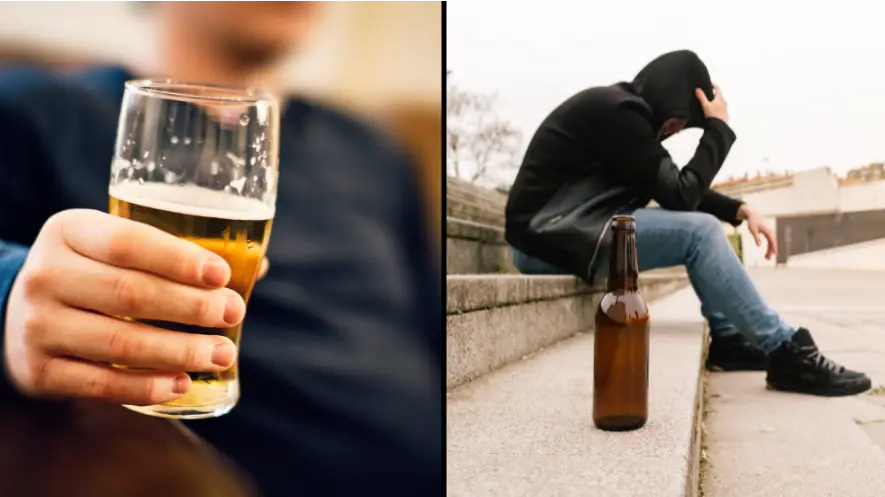
Alcohol addiction is an utterly devastating affliction which can result in all sorts of risks to health, life and personal wellbeing.
There are a number of signs to watch out for if you believe you might be suffering from alcohol addiction.
Those signs to look out for are drinking every day without really realising it, binge-drinking on a regular basis, often drinking more than health guidelines suggest while also drinking regularly during the day.
Advert
They're accompanied by only going to social events where drinking alcohol is involved and getting annoyed at others when they're not drinking.
While there are six big warning signs to look out for if you're trying to work out whether you or someone you know is an alcoholic, there are also different categories of alcoholic.
In the US, a joint study from the National Institute On Alcohol Abuse And Alcoholism (NIAAA), the National Institute Of Health (NIH), and the National Epidemiological Survey On Alcohol And Related Conditions (NESARC) found five subtypes of alcoholics as they aimed to put to rest the idea that there was just one 'typical' alcohol addict.
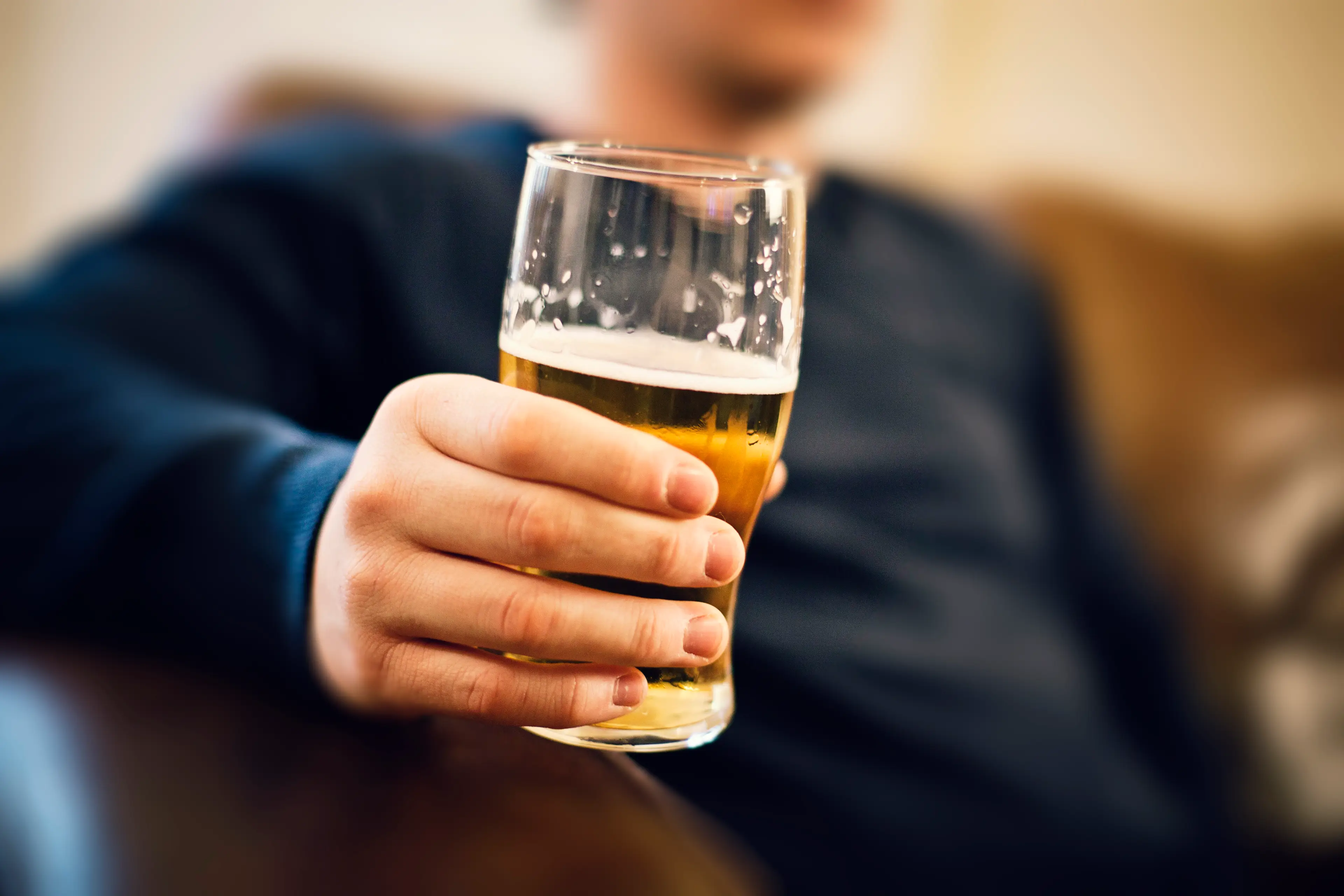
Young Adult
Different alcoholics will be affected by a range of factors, including their age, the age they started drinking and the environment around them.
Depending on these factors, the signs to look out for can change and not tack closely to people's perceptions of what a 'typical' alcoholic would look like.
The largest individual group of alcoholics the study found was the 'Young Adult', with 31.5 percent of alcohol addicts in this group.
They often started drinking from a young age and drink less often than other kinds of alcoholic, so they are less likely to be imbibing alcohol every day, but are more prone to serious binge drinking when they do drink.
Young and 2.5 times more likely to be male than female, they are unlikely to seek out treatment and may be laying the foundations for further alcohol abuse later on in life.
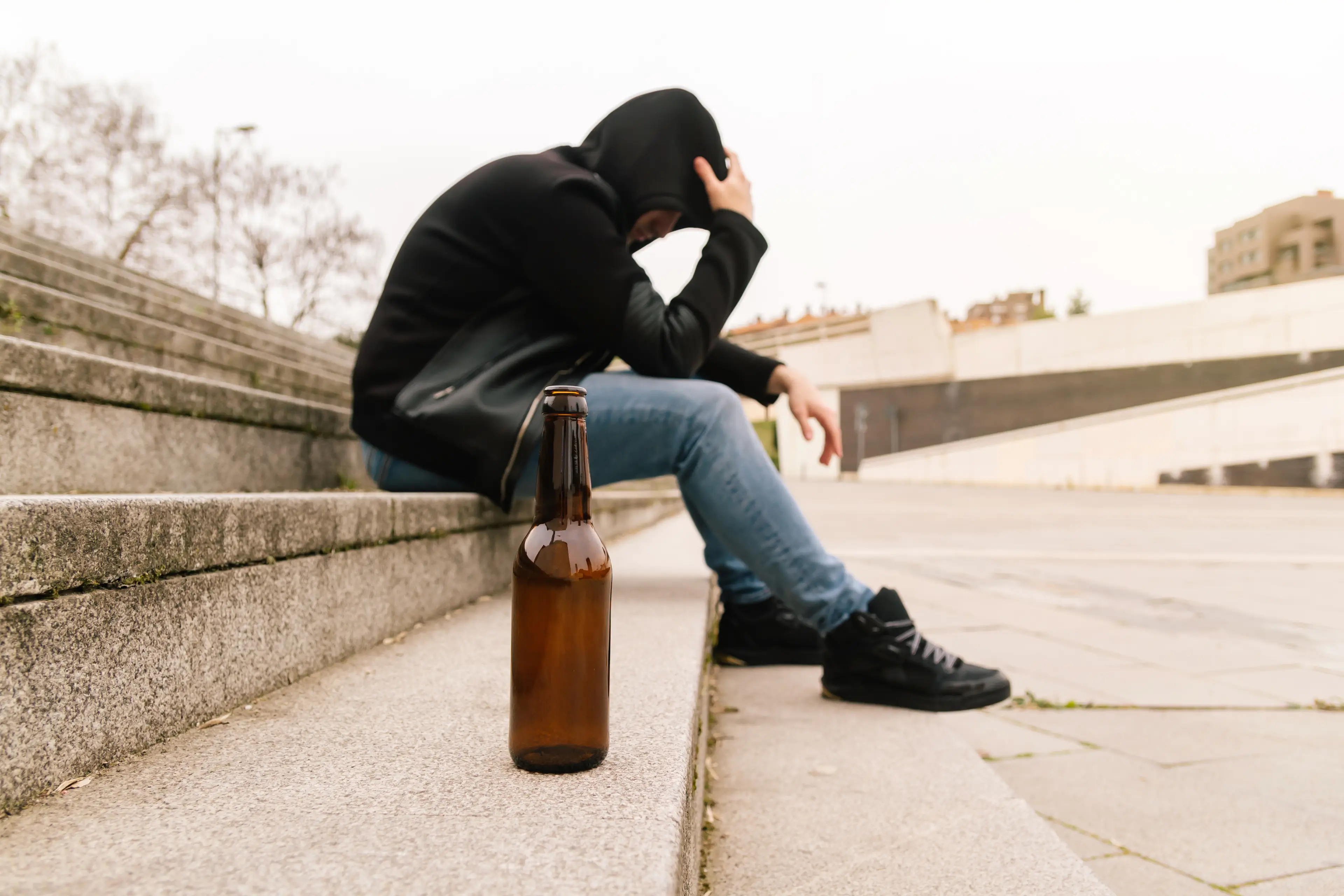
Functional
You may have heard the phrase 'functional alcoholic', and they are typically middle-aged people who didn't form a dependency on alcohol until later in life.
They are likely to be in employment and in a relationship, and have a moderate rate of depression.
Because on the surface they appear to have their lives together, they are the least likely group of the five to seek help, and made up 19.5 percent of alcoholics in the study.
While they may appear to have their lives together they are still addicts and alcoholism will still impact their lives negatively.
Alcohol may cause them to lose their jobs and impact their relationships with those around them, and they may also gain a criminal record for things like drink driving.
Spotting a functional alcoholic can be incredibly difficult as they are adept at hiding things, if they drink to excess it tends to be behind closed doors in their own home and while they can seem 'fine' on the surface, things can very quickly fall apart.

Immediate Familial
People in this group will tend to have started drinking from a young age, such as 17, and will likely begin to hit problems in their mid-30s.
This group, who make up 18.8 percent of alcoholics, are very likely to have someone in their immediate family who suffers from alcoholism.
People in this group have a high likelihood of suffering from antisocial personality disorder, depression, generalized anxiety disorder, and bipolar disorder.
Their addiction will often not just be confined to alcohol as well, as the study found that people in this category also showed high rates of being addicted to cigarettes, marijuana and cocaine.
This group tends to have a full time job, but their income levels are on average lower than the 'Functional' alcoholic category.
Only around a quarter of this group will seek help for alcoholism.
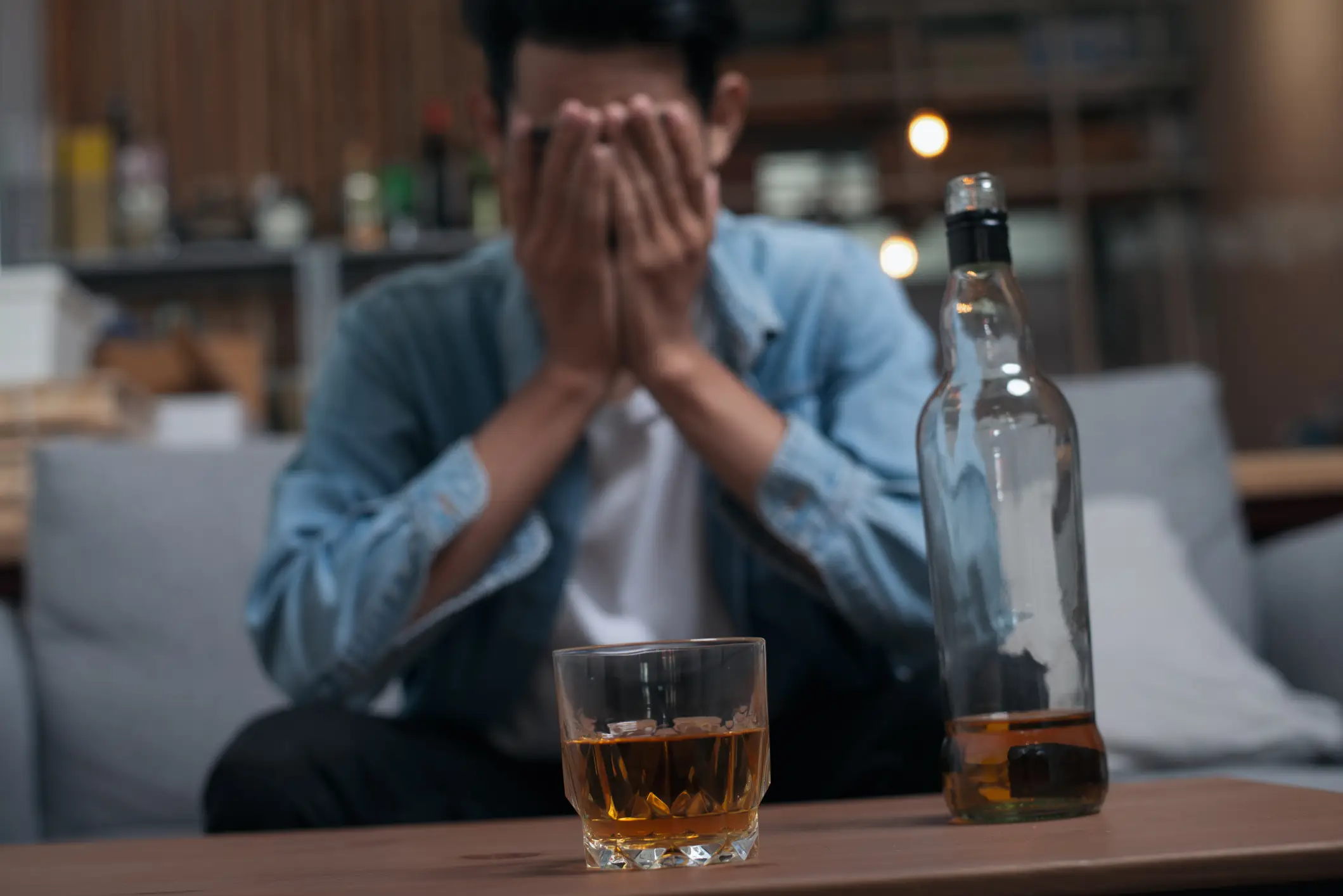
Young Antisocial
The second largest group of alcoholics, numbering 21.1 percent of those with an addiction to alcohol, people in this group start drinking from a very young age and have a dependence on alcohol while still in their teenage years.
More than half of this group have an antisocial personality disorder and suffer from high rates of depression and bipolar disorder.
'Young Antisocials' also suffer terribly from addictions to other substances including cigarettes, marijuana, cocaine, meth and opioids.
They have the lowest levels of education, employment and wealth of any of the types of alcoholic, and around 35 percent of them will end up seeking help.
However, this type of alcoholic can lead to serious criminal behaviour.
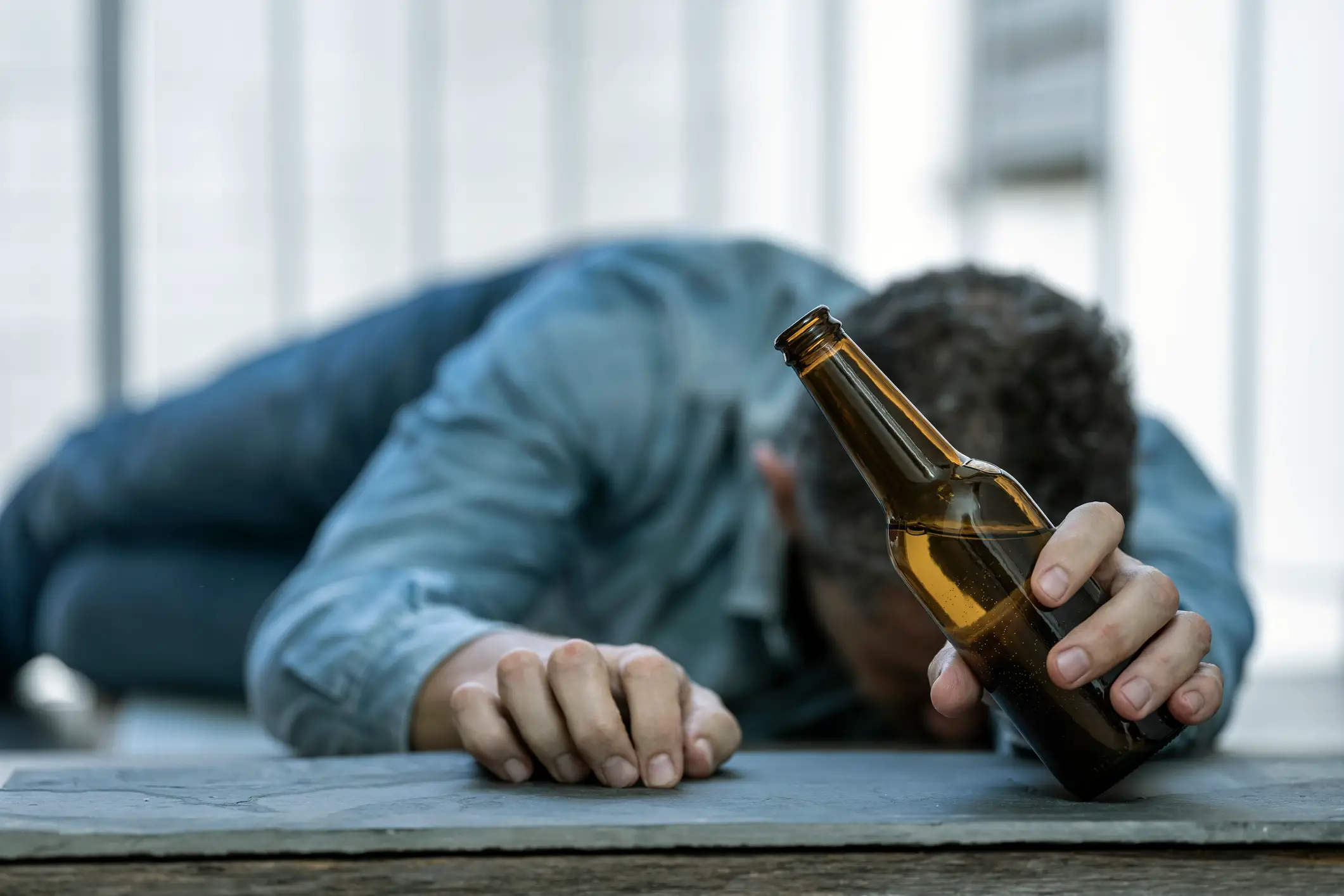
Chronic Severe
The smallest group of alcoholics with 9.2 percent of people in this category, this group started drinking at an age comparable to the 'Young Antisocial' (around 15), but developed a dependence on alcohol several years later.
77 percent of people in this group had an alcoholic in their immediate family and 47 percent show signs of antisocial personality disorder.
They tend to be middle-aged men who started drinking at a young age and are closest to a person's idea of a 'typical' alcoholic.
People in this category tend to struggle with life, having difficulty keeping jobs and personal relationships going, and will often suffer health issues from alcoholism.
They have the lowest employment rate of any group, while they suffer high rates of divorce and separation in their marriages.
Two thirds of this group will end up attempting to get help for their alcoholism, they are the most likely to seek help and attempt to go into rehabilitation.
You can find an alcohol or drug service in your local area or use the following information to get support:
With You provides a range of support for alcohol, drugs and mental health via a local service or online. These are free and confidential services and include the following:
- Drinkline provides advice for anyone who is worried about their own or someone else’s drinking – phone 0800 731 4314, available Monday to Friday, 9am to 9pm and Saturday to Sunday, 10am to 4pm.
- Alcohol Helpline can provide advice and support if you’re over 50 and are worried about your own or someone else’s drinking – book an appointment online or phone 0808 801 0750, Monday to Friday, 12pm to 8pm and Saturday to Sunday, 10am to 4pm.
- Know The Score provides support if you’ve taken drugs, are thinking of taking them, or are just curious and want to know more – use their webchat or phone 0800 587 5879, Monday to Friday, 9am to 9pm and Saturday and Sunday, 10am to 4pm.
Topics: Health, Mental Health, Education, Food And Drink